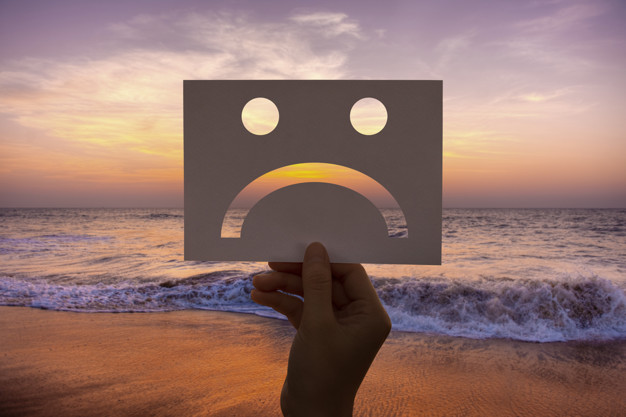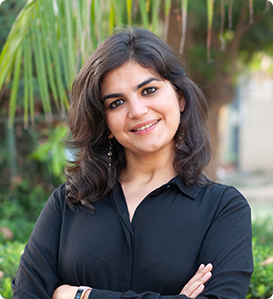
FEELING ANXIOUS ABOUT CORONA VIRUS? SIMPLE WAYS FROM PANIC TO PROUDCTIVITY

The news right now is more depressing than informative. Hysterical articles in the media sell papers and attract eyeballs to websites, but usually exaggerate facts. If you listen without evaluating what you’re being told, it’s easy to become frightened. What does our expert suggest? Is there a way to switch this panic to productivity?
Our world seems to be in constant danger right now. The human brain is not wired to tolerate uncertainty, but it is wired to be alert to any threat. So, if you are too feeling pandemic panic, it is only natural!
Blame your brain. Emotional panic can create a shutdown of feelings, leading you to a state of shock. You cannot think clearly, respond adequately or make clear decisions. In panic, we find it hard to retain information, or accurately assess the situation in hand. In such harsh times, Panic is the worst thing you can do in a real emergency. If the situation is not dire, panic will only make it worse. And although, many of us might still be well versed in identifying the challenges of issues that are most affecting us, very few are willing to commit to identifying solutions and following through with actions that are realistic.
So, what do you do in an uncertain and upsetting situation like now? I am sharing with you some techniques that can teach you, how to stay calm when the situation is threatening and what to do in case, a loved one around you is in a state of fear or panic.
1. Learn to recognize the anxiety
The first step to mastering your anxiety is to recognize what is triggering the anxiety. Are there any changes in the body? Any sensation? Change in breathing pattern let’s say. Instead of ignoring it and letting it build up and take over, simply note the reaction as soon as you feel it buzzing in your heart. The spinning in your brain: This is anxiety! When we do this, we take the emotion, out of anxiety. Recognizing the feeling of anxiety puts you back in control; instead of facing an amorphous threat that can feel overwhelming and scary, you’re now dealing with a known phenomenon.
2. Take responsibility to figure out what is causing the fear
Unless you’re in immediate, direct danger, whatever is scaring you is probably not as urgent as you think. Make a list of what you’re afraid of that help you move beyond free-floating anxiety and you will begin to think more clearly. It’s important to sit with your emotions and to allow any feelings to exist alongside whatever actionable steps you’re taking. The simple acts of picking up groceries or medical supplies, Face-Timing with a friend, or reading up on well-sourced news — despite its ability to provoke anxiety initially — can prove to be worthy challenges that will lead to a greater sense of personal control in the long term.
3. Plan on things you can do
It’s natural to be concerned about what may happen! While these possibilities can be scary to think about, being proactive can help relieve some of these anxieties. Focus on concrete things you can do, try to solve a problem or adapt to change, rather than focusing on circumstances beyond your control. After you’ve evaluated your options, draw up a plan of action. When you’re done, set it aside and resist the urge to go back to it until you need it or your circumstances significantly change.
4. Sell yourself on a positive outcome
We spend hours and hours dwelling and ruminating on the negative and fearful things in our lives. We worry about what could go wrong, instead of focusing and paying attention to the rational, the positive and the good. Too much thinking and analyzing just makes any problem worse. Today is a wonderful day – live it in the present! Think of all the possible great outcomes of the changes you’re making. With a calmer outlook, you’ll be able to make better decisions and create a more successful outcome.
5. Deep Breathing
The technical term for this therapy is “regulated breathing” but it is a practice borrowed from ancient Eastern traditions — including yoga and Zen meditation — and has been recognized for centuries as a way to fight stress and quiet a racing mind. Research has shown that regulated breathing can slow heart rate, improve digestion, lower blood pressure and ease anxiety. Other research shows that conscious breathing patterns can lower cortisol levels and can even downregulate the amygdala, the anxiety center in the brain.
Also Read: WHAT ARE SOME LIFESTYLE CHANGES YOU CAN CONSIDER POST COVID19?
The need of the hour is to get organized, identify the challenges, identify your preferred solution and take constant (preferably weekly) actions where you ask questions, share knowledge and explore resources! When you notice self-limiting and self-defeating thoughts playing over and over in your mind, say “STOP! I will not give you any more power over me! I have better things to do!!”
If you still feel anxious, stressed or depressed, ask for professional help. Leading Wellness Center in Gurgaon like ours, Mindfulness Coach, Wellness Experts, Psychologists, and Leading Hospitals are now offering online consultations in Delhi/NCR.
Let’s get to self-work!

Dr. Priyamvada Dua
(Consultant)
Dr. Priyamvada Dua
Consultant- Mindfulness Based Cognitive Therapy
Dr. Dua pursued her entire higher education in the United Kingdom. After obtaining her Masters degree in Neurosciences from Imperial College London she did her PhD in Neuropsychiatry from BARTS and the London School of Medicine and Dentistry. She has worked extensively on an autoimmune model of movement disorders and psychiatric conditions like OCD, Depression, ADHD and Autism as part of European Multicentre Tics in Children Studies (EMTICS). She has been trained in a range of psychotherpaies like cognitive behavioural therapy, Gestalt and Emotion-Focussed Therapy.
Dr. Dua has been honored with numerous awards and rnethods, Professor Mary Robertson Award for research contribution in Tourette’s Syndrome, Honorary Consultancy at Microbiology, Virology and Infection Control Laboratory, Great Ormond Street Hospital for Children, London.
After her extensive research experience Dr. Dua followed her passion and came to India to explore the role of art, spirituality and other creative mediums as alternative therapies for neurological and psychiatric disorders. Her vision was to amalgamate Western education with Eastern spiritual practices. She got trained in hypnotherapy, mindfulness practices, sound healing, Reiki, yoga science and numerous other complimentary methodologies. Her expertise now lies in providing cognitive therapies coupled with mindfulness and other holistic practices for treatment of anxiety, depression,addictions, phobias and mind-body illnesses.
Copyright © 2021, Metabalance Healthcare All Rights Reserved. Designed by: Webcare Technologies
 Call Now
Call Now
 info@metabalancehealthcare.com
info@metabalancehealthcare.com
